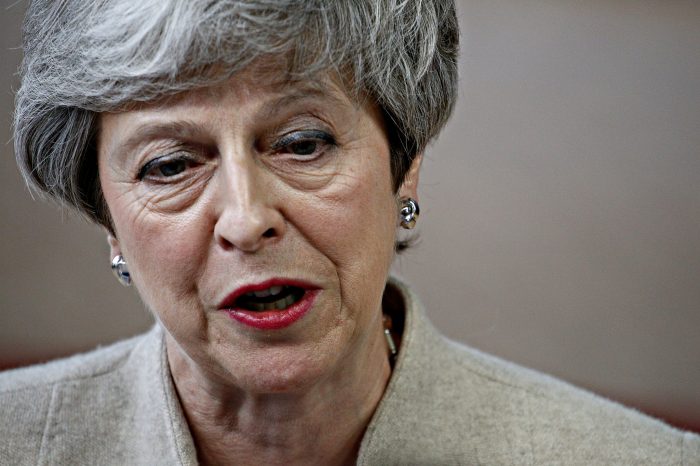Mrs May calls the remainiacs’ bluff
David Cameron bequeathed a tough job to his successor. He had not expected to lose the referendum and had forbidden the Civil Service to produce any sort of Brexit plan. It did not help that the various leave groups had not managed to unite around an agreed plan either.
This meant that, having won our amazing victory against all the odds, we have tasked Mrs May’s government and the Civil Service with the challenge of working through a huge number of extremely important issues relating to Brexit virtually from scratch.
With so much information to digest and to turn into a viable exit route within a tight timescale, the relative silence from the government is understandable. It is wise indeed not to give a running commentary as the complexities are analysed and options evaluated. Nor is it a good idea to reveal your negotiating hand prematurely. The odd hint has crept out, such as the “Have cake and eat it” memo which caused such a stir last week, to be followed very quickly by a denial that it was any indicator of official government policy.
There seems very litle point bothering readers with idle speculation based on what at this stage can only be guesswork. However, whatever the Supreme Court decides about the role of Parliament in triggering Article 50, there is much to be said for our MPs being given some sort of briefing before Article 50 is finally triggered so that they know the escape route the government plans to take.
A motion by Labour calling for the government to publish its plans on Brexit is not therefore particularly unreasonable in and of itself as long as the party accepts that there are good reasons why it is taking some time for the plans to be ready for publication. Unfortunately, Wednesday’s debate revealed that many of our elected representatives are not up to speed on a number of EU-related issues including, for example, the interface between the Single Market, the European Court of Justice and the EU’s customs union.
The government had put forward an amendment confirming that the House of Commons will respect the view of the British people expressed in the EU referendum and call on ministers to start the Article 50 process of exit by the end of March. Although both the motion and the amendment are essentially symbolic, the amendment turned out to be an excellent way of smoking out the troublemakers. There are thankfully few of these among the Tories; although the majority of Conservative MPs voted for remain, much of the Parliamentary party has rallied round its new leader in respecting the vote and seeking to get the best possible deal.
On the Labour benches, the rude awakening on June 24th that many voters in their heartlands had chosen to support Brexit has meant that a good few MPs were supportive and will not resist the triggering of Article 50 as long as they can be reassued that it will not result in economic suicide.
With the vote passed by 448 votes to 75 and the Government amendment by 461 votes to 89, we can take some encouragement that the lower house will not derail Brexit. As the Daily Telegraph commented, “The vote….gives MPs a chance to show that they too acknowledge the primacy of the people on Europe. Those who refuse to back the amendment will be making a public declaration of contempt for the voters.”
Of course, Brexit has pulled away a traditional safety net for career politicians whose ambitions are thwarted. If you lose your seat in Westminster, there will usually be some sort of position available for you in Brussels. Indeed, if you manage to fail spectacularly, like Neil Kinnock or Peter Mandelson, you might end up as Commissioner with a six-figure salary and without even going through any democratic process to get your new job.
For this reason, the opinion of the electorate perhaps counts for more than it did before, for if you lose the support of your constituents and thus your seat, there will be one less alternative career option open to you.
So when the vote was finally taken, it was a relief that only 89 MPs voted against the government’s amendment, with the majority of Labour MPs siding with the government. After all, whatever the legal niceties about whether or not the referendum was binding, the government’s infamous booklet couldn’t have been clearer:- “This is your decision. The government will implement what you decide.”
Well, we made our decision to leave and as even the Guardian admitted last week, “Remain is still losing rather than winning support. There is no appetite for a second referendum.” It is time for the 89 MPs listed below to wake up and smell the coffee.
Conservatives(1):
Ken Clarke
Labour (23):
Helen Hayes
Meg Hillier
Peter Kyle
David Lammy
Chris Leslie
Ian Murray
Barry Sheerman
Tulip Siddiq
Angela Smith
Catherine West
Daniel Zeichner
Rushanara Ali
Graham Allen
Ben Bradshaw
Ann Coffey
Neil Coyle
Stella Creasy
Geraint Davies
Louise Ellman
Jim Dowd
Chris Evans
Paul Farrelly
Mike Gapes
Lib Dems (5):
Nick Clegg
Sarah Olney
Mark Williams
Alistair Carmichael
Tim Farron
SDLP (2):
Alasdair McDonnell
Mark Durkan
Plaid Cymru (3):
Liz Saville Roberts
Hywel Williams
Jonathan Edwards
Green (1):
Caroline Lucas
Independent (2):
Michelle Thomson
Natalie McGarry
SNP (51):
Hendry, Drew.
Stewart Hosie
George Kerevan
Calum Kerr
Chris Law
Angus MacNeil John Mc Nally
Callum McCaig
Stuart McDonald
Anne McLaughlin
Carol Monaghan
Paul Monaghan
Roger Mullin
Gavin Newlands
John Nicolson
Brendan O’Hara
Kirsten Oswald
Steven Paterson
Margaret Ritchie
Angus Robertson
Alex Salmond
Tommy Sheppard
Chris Stephens
Alison Thewliss
Mike Weir
Catherine West
Eilidh Whiteford
Philippa Whitford
Corri Wilson
Pete Wishart
Tasmina Ahmed-Sheikh
Hannah Bardell
Mhairi Black
Ian Blackford
Kirsty Blackman
Philip Boswell
Deirdre Brock
Alan Brown
Lisa Cameron
Chapman. Douglas
Joanna Cherry
Ronnie Cowan
Angela Crawley
Martyn Day
Martin Docherty-Hughes
Stuart Blair Donaldson
Marrion Fellows
Margaret Ferrier
Stephen Gethins
Patricia Gibson
Patrick Grady
Peter Grant







